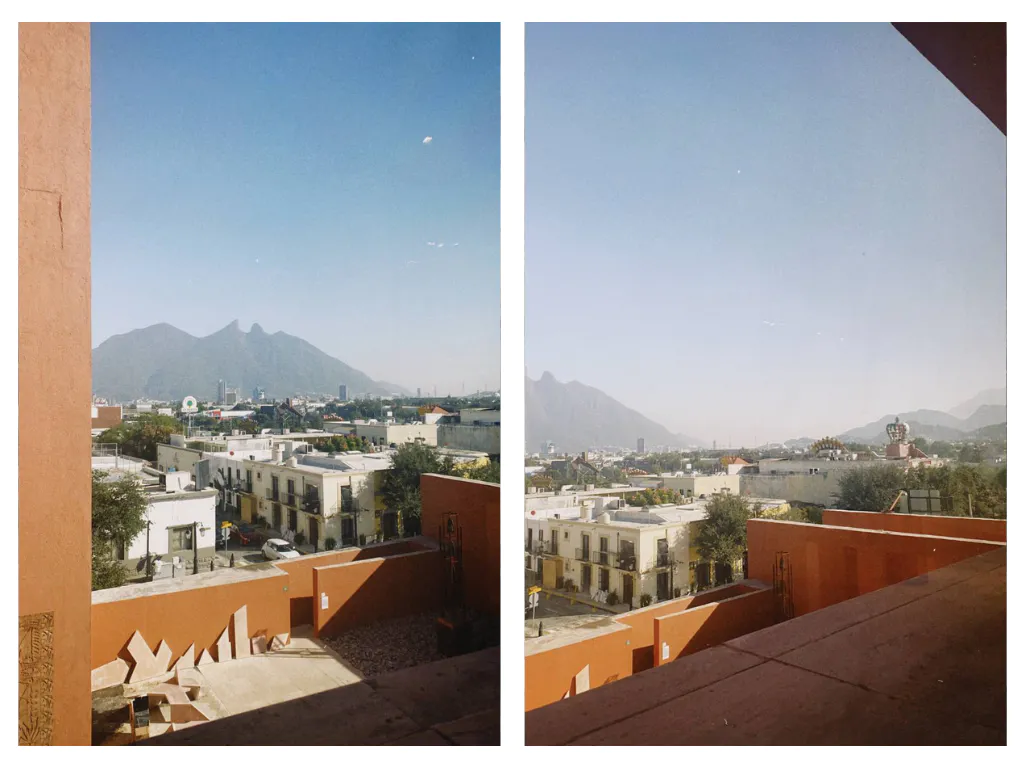MARCO - Museum of Contemporary Art in Monterrey
Marco opened its doors for the first time in June 1991. The postmodern minimalist building was designed by Ricardo Legorreta, a highly respected architect in Mexico.
The landmark and symbol of the museum is a large bronze sculpture - a 4 ton pigeon 5.5 meters high by sculptor Juan Soriano.

From the outside, the museum building looks huge, and indeed Marco occupies 16,000 square meters, of which a third is reserved for exhibitions in 11 halls-galleries.

In addition to the event and exhibition halls, there is a gift store (surprisingly boring) and a restaurant (open five days a week except Monday and Saturday, we were on Saturday and didn't get into the restaurant).

Admission for one adult costs 90 pesos (around $5 USD). The museum is free of charge on Wednesday and Sunday.

In the halls of the museum you can see both permanent exhibitions (mainly of Latin American artists, as well as artists from North America and Europe) and temporary - "touring".

I'll talk about the two expositions I enjoyed the most.
Helen Escobedo: Total Environments
Mexican artist, sculptor and museum worker Helen Escobedo is known for her abstract geometric works. Paintings, collages, drawings, models and sculptures analyze the relationship between humans and architecture (residential buildings, commercial buildings and even the Marco Museum).

The artist has also worked with the theme of boundaries and the ephemeral nature of materials. Her trademark is to create copies of her own works in new places from what is available nearby or in new colors more harmonious to the surrounding area.

Throughout her 50-year career, Helen Escobedo's work has invited reflection on the impact of people on others and on the world at large, anticipating what was later called relational art (relational aesthetics).
Marcelaygina
An exhibit that was created in Marco over the course of two years. It is dedicated to the duo of artists Marcela Quiroga and Georgina (Gina) Arispe, who for 13 years have been one of the most colorful Mexican performance collectives.
The three rooms raise issues of migration and xenophobia, unequal access to education and forced illegal labor.
Because we are not included in the context of what is going on, we had a hard time figuring out what was going on at first. Some kind of swing, an exhibition of "dirty laundry", wooden weapons scattered on the floor, a bright pink vest on a little girl ...
The "Swing" turned out to be a bundle of car cameras used by Mexicans trying to illegally cross the border into the U.S. to float their belongings and those who can't swim themselves (infants, children, the elderly, people with disabilities) across the water.
The "dirty laundry under glass" turns out to be things that were collected on the Mexican shore. That is, they are the belongings of those who either couldn't make it across (at best turned around and swam back, at worst fatal) or abandoned them without being able to pick them up. The impression when you first realize what lies before you, words cannot describe..... it felt oppressive.

Two more rooms are dedicated to feminism, and more specifically to adaptive culture. Here, Marcela and Gina discussed the aesthetics of femininity, both of which I am an ardent fan of, both in art discourse and in feminist discourse.
But here I found this part to be frankly weak, because it was limited to makeup and nail art. However, these are works from twenty years ago (2001-2004), when body modifications really hadn't reached the scale they have now. It would be interesting to see how the themes of injectable cosmetology, intimate plastics, and hair removal are conceptualized through the prism of Marcelaygina....

You can read more about Gina and Marcela's performances in Spanish-language sources, because there is a lot to read about. Among those interested in Latin American art, there are many admirers as well as those who have spoken harshly about the duo's work. The women have even been nicknamed "las niñas terribles del performance mexicano", which in my free translation from Spanish means "the disgusting artists from Mexico".

Bonus
Incredibly beautiful view of the Monterey Mountains from one of the museum's galleries.

Thanks for walking with us :) ! I talk about my life in Mexico in this Telegram channel. I will be glad if my experience seems useful or interesting to you ❤